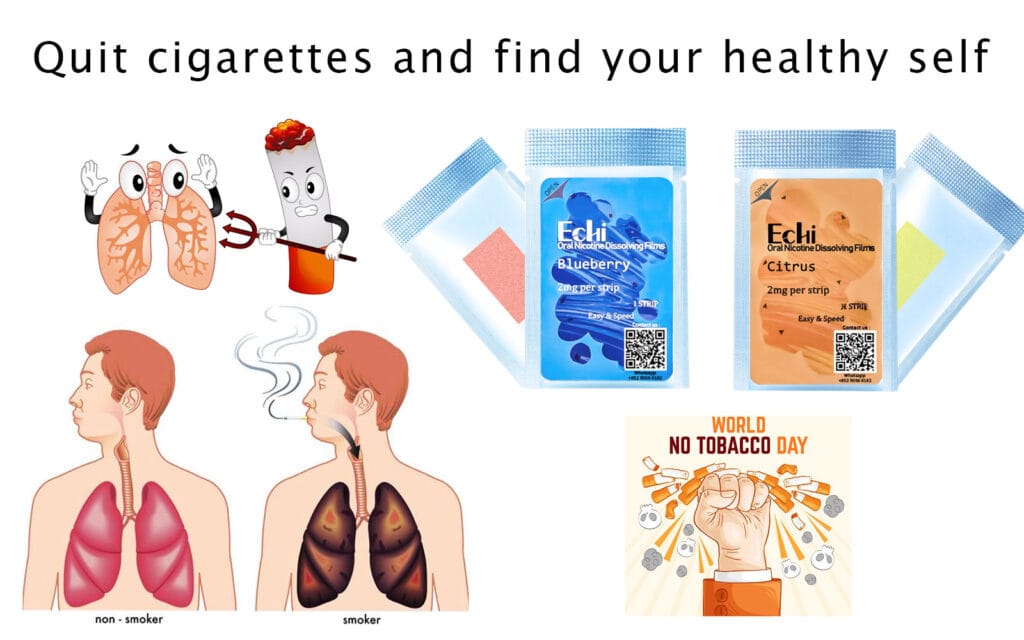Nicotine is a well-known component of tobacco products, but its effects on the brain are not always fully understood. While many people are aware of the dangers of smoking and tobacco use, the specific impact of nicotine on brain health is a topic that requires a closer look. This comprehensive guide will explore the potential risks of nicotine on brain health, how it affects cognitive functions, and what you can do to mitigate these risks.
What Is Nicotine?
Nicotine is a naturally occurring alkaloid found in the tobacco plant. It’s primarily known for its stimulating effects on the central nervous system. When nicotine enters the body, it quickly reaches the brain, where it acts on various neurotransmitter systems. This rapid action contributes to its addictive properties and its influence on mental functions.

Cognitive Functions
Nicotine also affects cognitive functions, such as attention, memory, and learning. Some studies suggest that nicotine can temporarily enhance cognitive performance by improving attention and concentration. However, these short-term benefits come at a significant cost. Chronic nicotine use can lead to cognitive impairments and long-term changes in brain structure and function.
How to get nicotine
Traditional cigarettes have long been the go-to choice for many, but they come with a hefty price—both to your health and the environment. Cigarettes deliver nicotine along with over 7,000 harmful chemicals, including carcinogens, which can lead to serious health issues over time. The nicotine pouches offer a cleaner, safer alternative. With nicotine pouches, like those from SnuffMint, you can enjoy the same satisfying nicotine experience without inhaling toxic substances.

How Nicotine Affects the Brain
Nicotine affects the brain through several mechanisms:
- Neurotransmitter Release: Nicotine stimulates the release of neurotransmitters such as dopamine, norepinephrine, and serotonin. Dopamine, in particular, is associated with pleasure and reward, which is why nicotine can create a feeling of euphoria or relaxation.
- Acetylcholine Receptors: Nicotine binds to nicotinic acetylcholine receptors in the brain. This interaction enhances cognitive functions like attention and memory in the short term but can lead to detrimental effects with long-term use.
- Brain Plasticity: Nicotine can alter brain plasticity, which is the brain’s ability to adapt and reorganize itself. While this can have some short-term benefits, long-term exposure may interfere with normal brain development and function.
- Dopamine and Reward Pathway: The release of dopamine creates a feeling of euphoria and relaxation, which reinforces the behavior of nicotine consumption. This is one reason why nicotine is so addictive. The brain’s reward pathway is activated, making the user crave more nicotine to achieve the same pleasurable effects. Over time, the brain adjusts to the increased levels of dopamine, requiring higher doses of nicotine to achieve the same effect, leading to tolerance and dependence.

Is Nicotine Bad for Your Brain?
Nicotine is a potent and highly addictive substance found in tobacco products, including cigarettes, e-cigarettes, and smokeless tobacco. While many people are aware of the physical health risks associated with nicotine use, such as lung cancer and heart disease, the impact of nicotine on the brain is less widely understood. This article will explore the effects of nicotine on the brain, drawing on scientific research to answer the question: Is nicotine bad for your brain?
Nicotine’s immediate effects on the brain

- Increased Alertness: Nicotine can enhance concentration and alertness by stimulating the release of neurotransmitters that improve cognitive function.
- Mood Enhancement: Many users report feeling a temporary uplift in mood and reduced stress levels after nicotine consumption.
- Appetite Suppression: Nicotine can act as an appetite suppressant, which is one reason why some people use it to manage weight.
These effects can be appealing and contribute to the addiction potential of nicotine. However, the short-term benefits come with long-term risks.
The Impact of Nicotine on Different Age Groups
The effects of nicotine on the brain can vary depending on the user’s age, but the risks are significant across the board. Adolescents and young adults are particularly vulnerable, as nicotine can interfere with critical brain development processes. During these formative years, nicotine exposure can disrupt the formation of synapses—connections between brain cells that are essential for learning and memory. This disruption can lead to long-term cognitive deficits and increase the risk of developing psychiatric disorders such as anxiety and depression.
For adults, while the brain has already developed, nicotine still poses serious risks. Chronic nicotine use is linked to an increased risk of neurodegenerative diseases like Alzheimer’s and Parkinson’s. Furthermore, nicotine can exacerbate existing mental health conditions, making it more difficult to manage symptoms of anxiety, depression, and other disorders.
Health Risks Associated with Nicotine Use
Nicotine doesn’t just affect the brain; it also has broader health implications that can indirectly impact brain function.
- Cardiovascular Health: Nicotine raises heart rate and blood pressure, which increases the risk of heart attacks and strokes. Poor cardiovascular health can reduce blood flow to the brain, leading to cognitive impairments and a higher risk of dementia.
- Respiratory Health: Traditional smoking and even vaping can lead to respiratory issues, such as chronic bronchitis and emphysema. When lung function is compromised, oxygen levels in the blood decrease, which can impair brain function and contribute to cognitive decline.
- Addiction and Mental Health: Nicotine addiction creates a cycle of craving and withdrawal, which can lead to mood swings, irritability, and anxiety. Over time, the stress of managing addiction can contribute to the development of mental health disorders.
Quitting Nicotine: Benefits for Brain Health

The good news is that quitting nicotine can lead to significant improvements in brain health. While the process of quitting can be challenging, the long-term benefits are well worth the effort.
- Improved Cognitive Function: Research shows that cognitive function can improve within weeks to months after quitting nicotine. Former users often report better concentration, memory, and overall mental clarity as the brain heals and forms new synaptic connections.
- Reduced Risk of Neurodegenerative Diseases: Quitting nicotine lowers the risk of developing neurodegenerative diseases. By reducing oxidative stress and inflammation in the brain, former users can protect their cognitive health and reduce the risk of cognitive decline.
- Better Mental Health: Without the constant cycle of nicotine cravings and withdrawal, former users often experience more stable moods and a greater sense of well-being.
A Safer Alternative: Nicotine Pouches
For those looking to quit smoking or reduce nicotine intake without giving it up entirely, nicotine pouches offer a safer alternative. Nicotine pouches allow users to control their nicotine levels without exposing themselves to the harmful chemicals found in cigarettes and other tobacco products. Unlike smoking, which delivers nicotine alongside thousands of toxic substances, nicotine pouches are smoke-free, odorless, and eliminate the risks associated with combustion.
Nicotine pouches, like those from SnuffMint, provide a controlled, cleaner nicotine experience that can help manage withdrawal symptoms and reduce the impact on brain health. They are especially useful for those who want to quit smoking but still need help controlling their nicotine cravings in a safer, more manageable way.

Conclusion
Nicotine’s impact on the brain is multifaceted, with both immediate effects and long-term risks. While nicotine can provide short-term benefits such as increased alertness and mood enhancement, its long-term use can lead to cognitive decline, addiction, and mental health issues. For adolescents, nicotine exposure poses additional risks due to its interference with brain development.
Nicotine pouches offer a safer alternative to smoking while still allowing users to control their nicotine intake. To mitigate these risks, it is crucial to seek professional help, consider gradual reduction strategies, and adopt a healthy lifestyle.
Understanding the impact of nicotine on brain health is essential for making informed decisions about tobacco and nicotine use. By being aware of these effects and taking proactive steps, you can better manage your health and well-being. If you or someone you know is struggling with nicotine dependence, seeking support from healthcare professionals can make a significant difference in achieving a healthier, nicotine-free life.
Remember, quitting nicotine is a journey, and every step you take toward a nicotine-free life is a step toward better brain health and a brighter future.
Frequently Asked Questions (FAQ):
1. What are nicotine pouches? Nicotine pouches are small, discreet pouches that contain nicotine without the harmful chemicals found in tobacco products. They are designed to be placed between your gum and upper lip, delivering nicotine without the need for smoking or vaping.
2. How do nicotine pouches help with quitting smoking? Nicotine pouches offer a controlled way to reduce nicotine cravings without the harmful effects of smoking. By providing a steady dose of nicotine, they help manage withdrawal symptoms, making it easier to gradually decrease nicotine use and ultimately quit smoking.
3. Are nicotine pouches safer than cigarettes? Yes, nicotine pouches are significantly safer than cigarettes. Unlike smoking, which exposes you to thousands of harmful chemicals, including carcinogens, nicotine pouches deliver nicotine without any smoke, tar, or harmful byproducts, making them a much healthier option.
4. Can I use nicotine pouches if I’m trying to quit nicotine completely? Absolutely. Nicotine pouches can be used as part of a step-down approach, allowing you to gradually reduce your nicotine intake over time. This helps to minimize withdrawal symptoms and increases your chances of successfully quitting nicotine altogether.
5. Do nicotine pouches have any side effects? While nicotine pouches are a safer alternative to smoking, they still contain nicotine, which can be addictive. Some users may experience mild side effects such as mouth irritation, dry mouth, or a slight increase in heart rate. It’s essential to follow usage guidelines and consult with a healthcare provider if you have any concerns.
6. How do I choose the right nicotine pouch for me? When selecting a nicotine pouch, consider the nicotine strength and flavor that best suits your needs. If you’re new to nicotine pouches, starting with a lower nicotine strength is often recommended. Brands like SnuffMint offer a variety of options to help you find the perfect fit.
7. Where can I buy nicotine pouches? You can purchase nicotine pouches from various online retailers and in some local stores. For high-quality options, you can explore the selection available at SnuffMint, which offers a range of flavors and strengths to suit your preferences.
8. Are nicotine pouches discreet? Yes, nicotine pouches are designed to be discreet and convenient. They do not produce smoke or odor, making them easy to use in public places without drawing attention.
9. How long do nicotine pouches last? Nicotine pouches typically last between 20 to 60 minutes, depending on the brand and your personal preference. You can keep the pouch in your mouth for as long as you find it satisfying, then simply discard it when you’re done.
10. Can I use nicotine pouches anywhere? One of the advantages of nicotine pouches is their flexibility. Since they do not produce smoke or vapor, you can use them almost anywhere, including in public places, at work, or even on flights.






